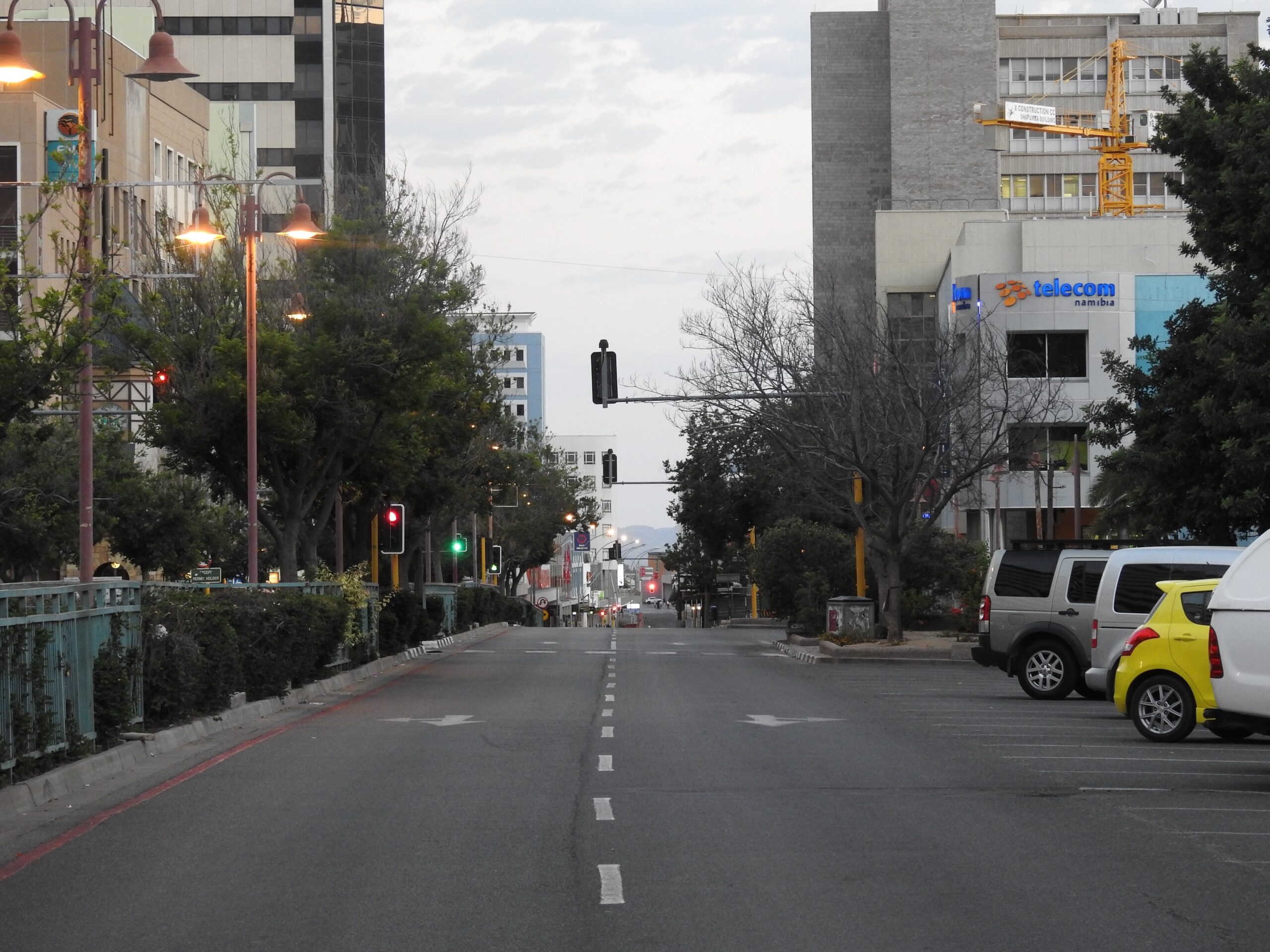Using PURE to support integrated and inclusive climate change planning in Windhoek, Namibia

This case study is part of the Urban Toolbox, a collection of tools aimed at supporting planning and decision-making for improving the health, well-being and resilience of city residents and urban systems more broadly. It demonstrates how GCRF Peri-Urban Resilient Ecosystems (PURE) Tool can be used to share information.
GO TO THE SEI URBAN TOOLBOX FOR LIVEABLE CITIES HOMEPAGE
Introduction
In Windhoek, FRACTAL contributed to developing the City of Windhoek’s new climate change strategy: the Integrated Climate Change Strategy and Action Plan (ICCSAP), and used the Peri-Urban Resilient Ecosystems Tool.
FRACTAL implemented a city learning lab approach in Windhoek to support the development of the ICCSAP. This approach brought a range of stakeholders together, including academics, practitioners, NGOs and other organizations.
During the labs, stakeholder groups unpacked climate-sensitive city issues and governance arrangements, deliberating the significance and implications of various climate scenarios.
Other activities emerging from these labs included city exchange programs and transformational leadership training on climate change for decision-makers.
The process enabled a different, inclusive approach to developing strategies, and resulted in real benefits for the city of Windhoek.
Summary
Prior to FRACTAL’s inception, the City of Windhoek (CoW) relied primarily on national government to drive its climate change agenda. Windhoek is located in an arid region of Namibia and national government interventions had focused on adaptation measures, such as improving access to water. Various departments within CoW executed climate response activities and a Climate Change Desk had been established. However, these were isolated activities, with little coordination between departments. Ad hoc activities had taken place under the national mandate of the Ministry of Environment and Tourism, but had not been well supported by politicians and councillors at the CoW, likely due to a lack of awareness around climate change science.
The FRACTAL project was implemented as CoW was starting to drive its own city-level agenda. FRACTAL’s inclusive processes supported the move towards an integrated climate change approach. A workshop for councillors, designed to raise awareness of climate change and related decision-making, highlighted the positive role councillors could play if they were well informed about current climate science and involved early in policy development. Thus the idea for a city-level climate change strategy and action plan was put forward. Further labs and engagements brought together a wide range of stakeholders who framed relevant ‘burning issues’ around climate change, namely water insecurity, lack of access to energy and to basic services in informal settlements. Learning activities explored the impacts of climate change on these issues in the city and climate risk narratives were interrogated with representatives from more than twenty organisations, including the University of Namibia, CoW, National Climate Change Unit, Environmental Investment Fund of Namibia, Shack Dwellers Federation of Namibia, and NamWater. At the third Learning Lab in August 2018, stakeholders from these different organisations contributed to a draft Windhoek ICCSAP.
The strategy will essentially drive the climate change agenda in the city going forward. Stakeholder feedback showed that learning labs, workshops and trainings had made information about changes in the climate at city and regional level both available and accessible.
Opportunities were created for Windhoek stakeholders to learn from the experiences of other southern African cities tackling climate challenges through exchange visits. Stakeholders in Windhoek commented on the effectiveness and usefulness of an approach that encouraged the mainstreaming of climate change knowledge in the city and developed new networks and stakeholder relationships. These will be critical for future collaborations as the city deals with the realities of climate change and challenges of urban development.
Within the CoW, FRACTAL opened conversations around climate change and resilience. The resulting shared understanding will be key to implementing the ICCSAP and further climate planning.
Lessons Learnt
The Windhoek case study highlights the importance of inclusive and integrated processes for developing city strategies and policies. According to feedback from Windhoek stakeholders, experiences from learning labs are likely to influence approaches to policy development in the city in the future. Key learnings from the FRACTAL processes included:
- Transdisciplinary co-production processes, such as FRACTAL’s learning labs, support the involvement of a wide range of stakeholders when framing problems and solutions so multiple perspectives can be integrated into planning for a city’s future.
- Improved understanding of climate science and climate information among politicians and other stakeholders enables the city to prioritise and motivate for budget to support climate change response activities. An ongoing awareness programme is advisable to prevent the potential loss of knowledge when personnel change.
- Having a dedicated strategy and action plan in place that clearly lays out the city’s vision, approach and identified responses to tackling climate change will help to leverage funding for mitigation and adaptation projects.
(0) Comments
There is no content